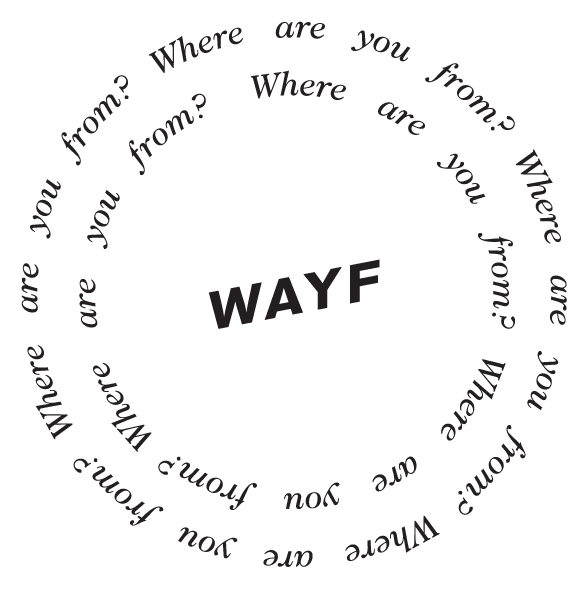Joshua Lynch
Haiku
Knives are let loose here
Bread is mistaken for skin
We share or slice you
Opinion
'Where are you from?' A knife in the form of a question that can either slice bread or skin depending on the sender’s intent and delivery, and the receiver’s level of awareness and compassion. For me, bread’s been sliced and shared more than blood, but that doesn’t mean I don’t have a few scars.
I’m sure what confuses people the most is the colour of my skin, a bit too brown to be white; the broadness of my nose, a bit too wide to be 'white' and my dance moves *Begins to dance*—I mean ain’t no white person dancin’ like me.
And if you noticed, in that joke lay the problem: over time we begin to learn to associate particular attributes and abilities with particular objects or, in this case, people. And these attributes and abilities become self-fulfilling prophecies for us. In the same way an archetypal white person could never comprehend a time when they would be able to move like Mike or me, an archetypal young Aboriginal teenager or black person could never comprehend a time when they could live like you. You.
Me? I’ve been discriminated against a couple of times. What often hurts the most is knowing that my Play-Doh like identity is much more than the colour of my skin or my place of birth, but not being able, or invited to communicate this, and as a result I end up reciting the same story:
'Born in Australia. Mother’s Australian. Father’s Maori. That’s where I get my colour from, I guess'
Now I know, intellectually, this story makes it easier for myself and the receiver. I know, intellectually, that physical characteristics are shortcuts for us to determine whether or not a person is in or out of our group. I even know, intellectually, that we tend to favour those who are in our group over those who aren’t. And this knowing often manifests into empathy for the other.
You see, I understand why someone would resort to asking that question rather than a more interesting one. And I understand why I might be looked at differently for not holding the necessary characteristics to be considered one of them, whoever they might be at the time. But the problem with empathy, in this case, is that it’s often passive and, to be honest, a bit lazy.
By defaulting to telling this story to avoid small talk and it’s associated social angst, am I not contributing to the problem? By asking others where they’re from am I not contributing to the problem?
What we need to do is to encourage ourselves and others to ask better questions rather than expecting others to not ask the questions we don’t want to answer:
Where does your style come from, Josh?
My style is currently influenced by Japanese menswear
Where does your taste in music come from, Josh?
Right now, my music taste is currently influenced by Chicago Soul
Where do your favourite cuisines reside, Josh?
Italy and Japan.
And just like a knife, the words that form our questions and answers have never told us what to do with them. It is for us to decide. So choose your words wisely, my brothers and sisters.





